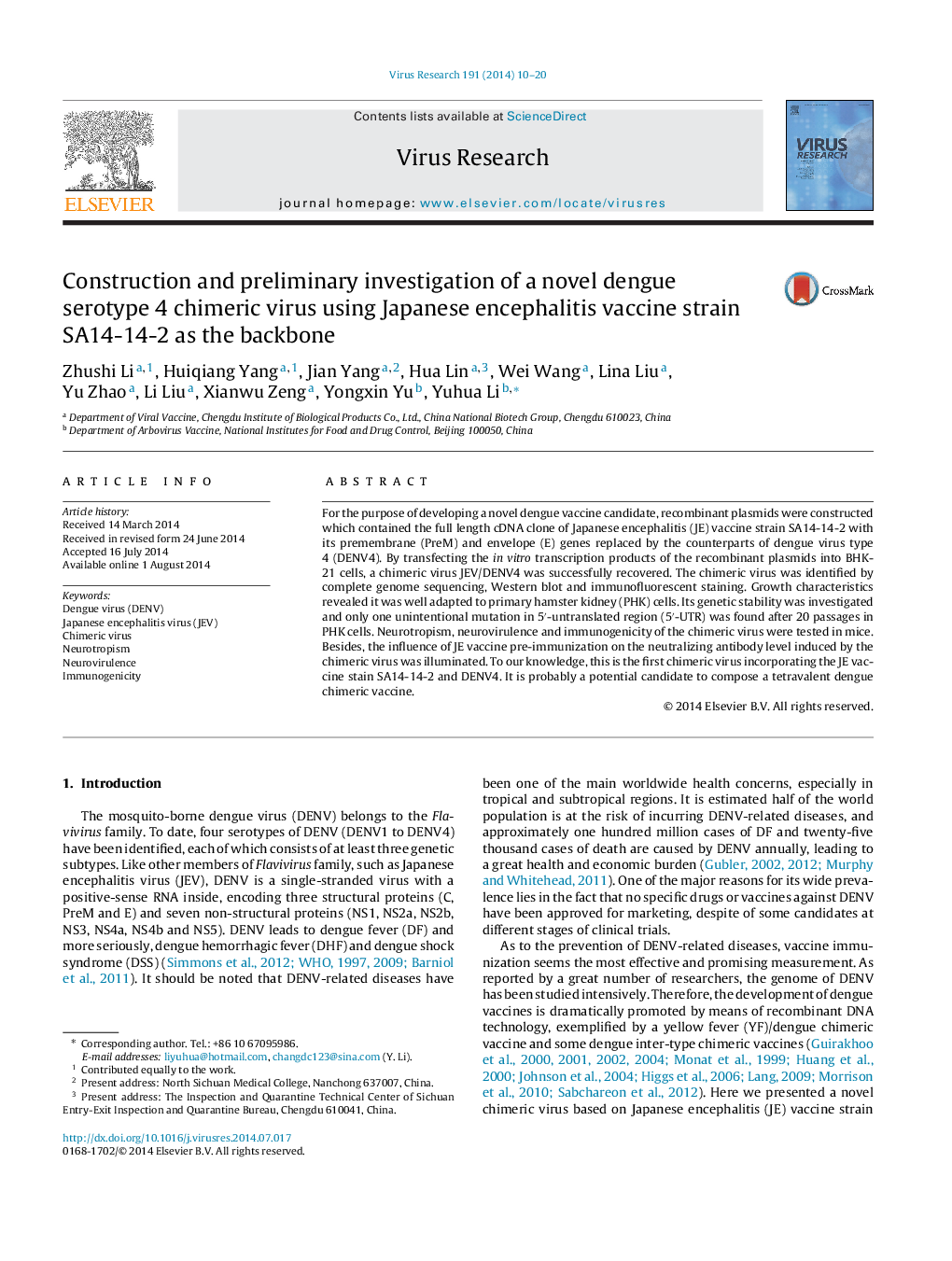| Article ID | Journal | Published Year | Pages | File Type |
|---|---|---|---|---|
| 6142332 | Virus Research | 2014 | 11 Pages |
â¢We successfully constructed the recombinant plasmids and recovered the JE/dengue type 4 chimeric virus from BHK-21 cells.â¢We revealed this chimeric virus was well adapted in the primary hamster kidney cells and reached a high titer.â¢The chimeric virus showed an extremely favorable genetic stability when passaged in primary hamster kidney cells.â¢It had no neurotropism in mice and induced neutralizing antibodies against DENV4, despite some neurovirulence.â¢We believe this work can provide new insights into the development of a novel tetravalent JE/dengue chimeric vaccine.
For the purpose of developing a novel dengue vaccine candidate, recombinant plasmids were constructed which contained the full length cDNA clone of Japanese encephalitis (JE) vaccine strain SA14-14-2 with its premembrane (PreM) and envelope (E) genes replaced by the counterparts of dengue virus type 4 (DENV4). By transfecting the in vitro transcription products of the recombinant plasmids into BHK-21 cells, a chimeric virus JEV/DENV4 was successfully recovered. The chimeric virus was identified by complete genome sequencing, Western blot and immunofluorescent staining. Growth characteristics revealed it was well adapted to primary hamster kidney (PHK) cells. Its genetic stability was investigated and only one unintentional mutation in 5â²-untranslated region (5â²-UTR) was found after 20 passages in PHK cells. Neurotropism, neurovirulence and immunogenicity of the chimeric virus were tested in mice. Besides, the influence of JE vaccine pre-immunization on the neutralizing antibody level induced by the chimeric virus was illuminated. To our knowledge, this is the first chimeric virus incorporating the JE vaccine stain SA14-14-2 and DENV4. It is probably a potential candidate to compose a tetravalent dengue chimeric vaccine.
